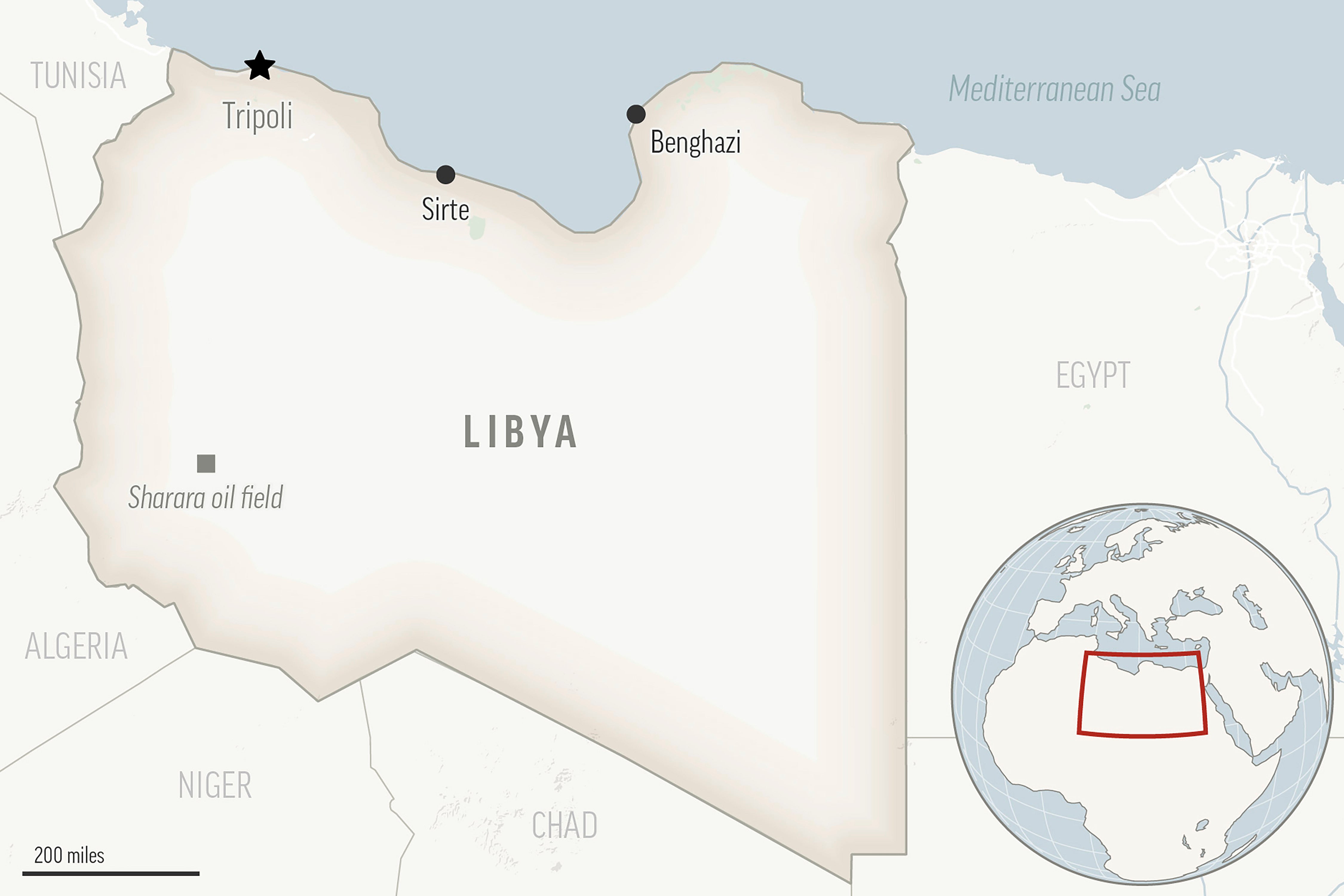Militia infighting kills at least 9 in Libya’s capital, officials say
Libyan officials say clashes between two heavily armed militia groups in the country’s capital terrorized residents and killed about a dozen people, the latest bout of violence in the largely lawless North African nation

Your support helps us to tell the story
From reproductive rights to climate change to Big Tech, The Independent is on the ground when the story is developing. Whether it's investigating the financials of Elon Musk's pro-Trump PAC or producing our latest documentary, 'The A Word', which shines a light on the American women fighting for reproductive rights, we know how important it is to parse out the facts from the messaging.
At such a critical moment in US history, we need reporters on the ground. Your donation allows us to keep sending journalists to speak to both sides of the story.
The Independent is trusted by Americans across the entire political spectrum. And unlike many other quality news outlets, we choose not to lock Americans out of our reporting and analysis with paywalls. We believe quality journalism should be available to everyone, paid for by those who can afford it.
Your support makes all the difference.Clashes between two heavily armed militia groups in Libya's capital terrorized residents and killed about a dozen people, the latest bout of violence in the largely lawless North African nation, officials said Saturday.
The hours-long clashes, which involved heavy weapons, occurred Friday in Tripoli’s eastern neighborhood of Tajoura between Rahba al-Duruae militia, which is led by warlord Bashir Khalfallah — known as al-Baqrah — and another militia al-Shahida Sabriya, the officials added.
The Health Ministry’s Ambulance and Emergency Services said at least 9 people were killed and 16 others were wounded in the hours-long clashes.
The clashes stemmed from an attempted assassination of al-Baqrah on Friday, which his militia blamed on al-Shahida Sabriya, according to local media reports.
Khaled al-Meshry, the newly-elected head of the west-based High Council of State, condemned the assassination attempt and called for an investigation to hold those responsible accountable.
The warring parties are allied with Prime Minister Abdul Hamid Dbeibah’s government. Its spokesman didn’t respond to a request for comment.
The violence underscored the fragility of war-torn Libya following the 2011 uprising-turned-civil war, which toppled and later killed longtime dictator Moammar Gadhafi. Amid the chaos, militias grew in wealth and power, particularly in Tripoli and the western part of the country.
Libya has been divided for years between rival administrations in the east and west, each backed by armed groups and foreign governments. Currently, it is governed by Dbehiba’s government in Tripoli and by the administration of Prime Minister Ossama Hammad in the east.
Western Libya is controlled by an array of lawless militias allied with Dbeibah’s government, while forces of powerful military commander Khalifa Hifter control the country’s east and south.
Friday’s militia infighting was the latest in a series of clashes between militias competing for influence in the country’s west.
In May, militia clashes rocked the coastal town of Zawiya, trapping families for houses inside their homes, killing at least one person and wounding 22 others. And in August last year, a 24-hour period of fighting between rival militias in Tripoli killed at least 45 people.
The capital’s clashes came as Hiftr’s forces said it deployed troops to the southwestern areas to secure Libya’s southern borders. The deployment prompted militias in western Libya to mobilize amid mounting concerns of a potential new war between east and west Libya.
The United Nations' mission and Western embassies in Libya expressed their concerns that the military movement could explode into an all-out war between Hifter's forces and the West-based militias, four years after a cease-fire deal ended a 14-month war between the two sides.
“Such movements risk escalation and violent confrontation and could put the 2020 ceasefire at risk,” said a joint statement by the embassies of France, Germany, Italy, the U.K. and the U.S.